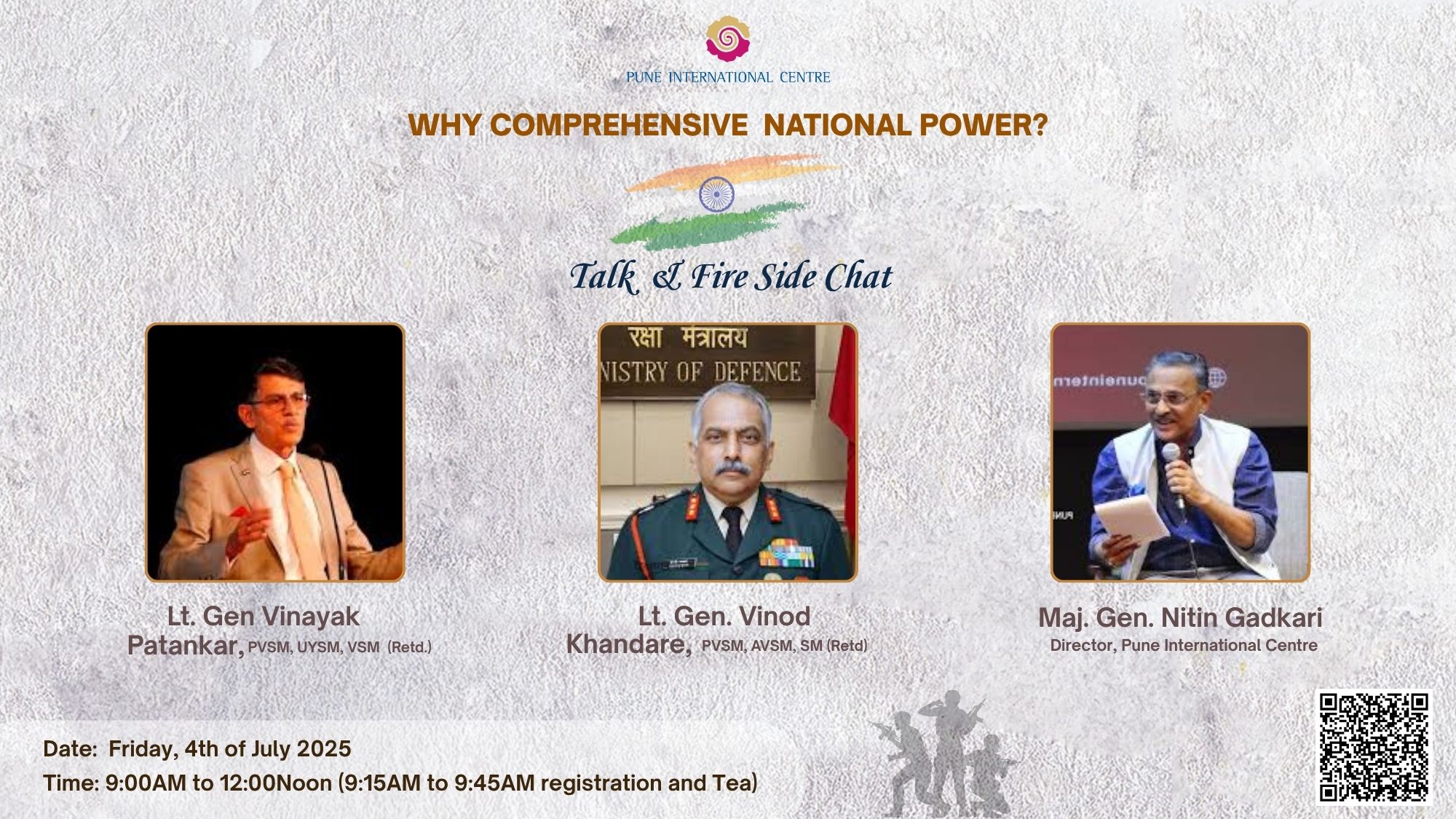PIC had the honour of hosting Dr. Sanjaya Baru, Distinguished Fellow, United Services Institution of India (USI) and former Media Advisor, Prime Minister’s Office (PMO) for a discussion on his book “India’s Power Elite: Class, Caste, and a Cultural Revolution” on 25th June. This session was chaired by Dr. Suhas Palshikar, Professor and Political Commentator.
Dr. Baru began by noting that power and the systems that enabled it had always fascinated him. He reminisced that he read C. Wright Mills and Bertrand Russell, as well as Antonio Gramsci and their take on power and how it worked. Their writings led to his interest in learning about how power worked in India. Ram Manohar Lohia’s writings also deeply impressed and influenced him. He noted that politicians like Mulayam Singh and Lalu Prasad Yadav, were products of Lohia’s socialism, despite which Lohia was all but absent in the public discourse on power in India. The three characteristics that Lohia defined Indian elite by were inherited wealth, upper class status and education in English language – this was, of course, the situation in the Nehru era, Dr Baru said.
He noted that the book was contextualised by pegging it to the rise of Prime Minister Narendra Modi, which then became the initial chapters of the book. In his view, the dynamics of dominance, class, and caste and the transitions of power in Delhi have undergone significant change in the past decade, which was highlighted and symbolised by the Modi administration. While the composition of the political elite had certainly undergone significant change, India was yet to see the direct participation of the business or industrial elite in government, akin to the industrial lobbies and complexes in USA. However, he noted that by and large there was a nexus between politicians and business persons. Inherited wealth was no longer a necessity, while caste remained a major question and bastion only in Uttar Pradesh (with any major consequence). English was now important, though not of any significance in politics – where the language of power had now become Hindi. Hindi fundamentalism had seen increased assertion, though which way this portended remained to be seen.
The discussion was enriched by a round of questions for the speakers from the audience.




